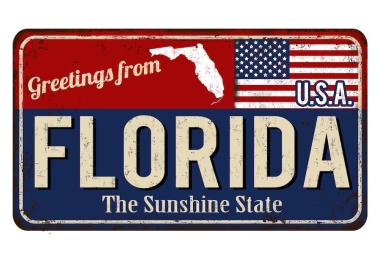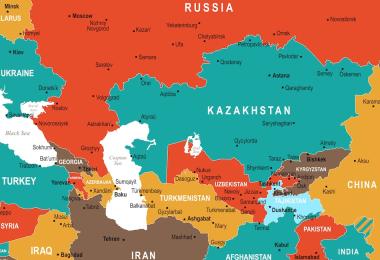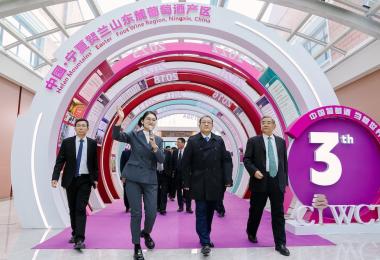Washington State’s burgeoning winemaking scene is heavily influencing what’s happening in Seattle. More and more acres are being converted from orchards to vineyards, and there’s a healthy mix of large and small producers keeping Seattle well supplied with Riesling, Chardonnay, Cabernet Sauvignon, Merlot, Syrah, and more.
On the flip side of this home-grown boom is the ever-continuous influx of intelligent, highly paid transplants lured by a tech industry that knows no limits. The city, already quite cosmopolitan by all accounts, is shadowed by cranes — development is booming.
The city’s wine drinkers are younger, have more money, and are more adventurous than previous generations. Wine retailers evaluate shelf space and balance international offerings against wines made in Washington, which is what a customer will end up buying about 25% of the time.
The Washington State Liquor Control Board lists nearly 40 wine importers and almost 150 distributers, though Southern Wine & Spirits and Young’s Market Company (in partnership with Columbia Distributing) handle most of the volume. Washington State wine retailers are required to pay distributors immediately for wine deliveries, so buyers for retail shops typically don’t make large-volume orders, opting instead for smaller quantities of wines they fully believe in.
Washington State voters’ approval of Initiative 1183 transferred retail liquor sales from the state-run monopoly to the private sector in 2012, somewhat altering the retail wine business, as it welcomed larger alcohol chains that had previously not seen Washington State as worth the effort without hard liquor sales.
Seattle is famous for its independent, artisanal way of life, so this list of independent wine retailers is hardly exhaustive; but here are some of the most popular, well known and historic.
Esquin Wine & Spirits
esquin.com
Ask anyone where to buy wine in Seattle and Esquin Wine & Spirits is often the answer. Established in 1969, this SoDo (south of downtown) shop has grown and expanded its services over the years, now offering about 5,500 labels of wine, 1,200 spirits, a 4,000-sq-ft, climate-controlled wine storage facility, and shipping capabilities to more than 30 states, due to the acquisition of online wine fulfilment operation MadWine in 2009.
Chuck LeFevre took ownership in 1997, and in those early days he remembers the wines from Washington State all fit on one shelf — they now represent 20% to 25% of his wine business. “The number of wineries has exploded in the last 18 years,” says LeFevre. “And the quality has increased exponentially. We now have almost 1,000 wineries in Washington and the quality is on par with most of the great wine regions of the world. That simply wasn’t the case back then.”
He works with about 20 smaller distributors, and of course the two large distributors. “National distribution of the major brands will almost always go to the big two,” he says. “But there seems to be enough business to go around for the smaller distributors.”
Initiative 1183 had a greater significance for Esquin than it did for most other retailers, as they were large enough (greater than 10,000 sq ft) to qualify for a spirits license. “The change in the law definitely impacted our business,” says LeFevre, saying they took on liquor sales in order to compete. “But we have a 46-year history as a wine retailer and we will continue to specialise in that.”
McCarthy & Schiering Wine Merchants
mccarthyandschiering.com
Daniel McCarthy and Jay Schiering opened the doors to their Ravena shop in 1980, and then opened a second shop atop Queen Anne a decade later because they found a spot across the street from the now-departed Queen Anne Thriftway, a high-end grocer that would fly bread in from Paris — but only carried two wines. “That was pretty easy,” says McCarthy, on spotting the potential. “It didn’t take much to deduce that. Essentially, you want to be in a wealthier neighbourhood, because that’s where wine will be consumed on a daily basis, not just for parties.”
McCarthy & Schiering has become a Seattle institution in the years since, widely acclaimed as the place to go for fine wine. McCarthy is quick to credit the neighbourhood for their success. “We’re located right next door to a well-known butcher,” he says. “We get traffic from five to seven where people are grabbing a steak and bottle of wine. The Ravenna store doesn’t have that adjacency, but it does have a lot of loyal buyers who buy larger purchases, in higher quantities.”
He estimates the Queen Anne shop does about 30% of its business in Washington State wines, and the rest is nearly all French and Italian. “We do very tiny amounts of California: 1% to 2% of our sales,” he says. “It’s a completely different model than most wine shops you’ll find around the country. It also means we’re not heavily promoting the big-name California wines.
“And we don’t use scores in the shop, that’s a model that is [not good for us],” he adds. “We want people to come in, to be buying wines because we’re talking to them about it, and working with them as clients.”
Champion Wine Cellars
championwinecellars.com
When the State of Washington relinquished its monopoly on wine distribution and sales in 1969, Emile Ninaud grabbed the first retail license off the press and opened Champion Wine Cellars at 1st and Denny, not too terribly far from the Space Needle. He runs the shop to this day with wife, former wine importer, Stephanie.
Champion shelves 1,500 or so labels, specialising in the regional wines of Europe and the better offerings from Washington and California. The selection of French wine is particularly strong. “I have an advantage,” jokes French-born Ninaud. “I know how to properly pronounce things.”
He’s in awe at how the Seattle wine market has changed, and how his role has changed from wine merchant to wine educator. “Seattle’s been very prosperous for the past four years, and growing at an amazing rate,” says Ninaud. “We have so many newcomers from all over the world, and they know very little about the wine industry, especially the Washington wine industry, so we try to be on the forefront and educate them.”
Ninaud prefers to work with the smaller distributors, noting that since Initiative 1183 passed the larger distributors seem to be more into bulk distribution than the fine wine business, and takes issue with tiered pricing based on volume. “They want to stack cases of wine in the various stores, instead of specializing in the better wines,” he says. “So we deal primarily with the smaller distributors, which offer better service and better price.”
But the market is booming and it’s an exciting time in Seattle. “It is a very good time to be in the wine business,” remarks Ninaud.
DeLaurenti Specialty Food & Wine
delaurenti.com
If you’ve been to Seattle you’ve surely visited the famous Pike Place Market, and if you’ve done that you’ve no doubt seen fine food and wine purveyor DeLaurenti anchoring the Market’s southeast corner.
The upstairs wine department features 1,800 labels, with a focus on what pairs well with food. Particularly well represented are Italy, France and the Pacific Northwest. Hard-to-find Cayuse Vineyards can be found here, as can Reynvaan, Magnums of Fontodi Chianti Classico, and Langoureau Saint-Aubin 1er Cru.
Founded in 1946, what has made DeLaurenti such an enduring success? “It has to be the people,” says Pat McCarthy, co-owner since 2001. “We have amazing food products, but anyone can source our products — it takes passionate, kind people to build, maintain and grow a business.”
McCarthy attributes Seattle’s interesting wine scene to the mix of incoming young, tech professionals and long-time Seattleites. “It’s a huge tent,” he says. “There is lots of variation in wine desires, from score-driven buyers to esoteric, adventurous connoisseurs. Rosé has been hot for years and continues to be.” Most significantly, French wine has really taken off. “Countless French importers and distributors have popped up,” says McCarthy. “We have lots of great new restaurants that are French and Northwest in style, and French wine is bigger than I've ever seen.”
Sixth Avenue Wine Seller
sixthavenuewineseller.com
Located on the third floor of upscale Pacific Place Mall in the heart of downtown, Bev Shimada’s Sixth Avenue Wine Seller sees a heavy mix of tourists and business people popping in to grab a bottle during lunch or on their way home at the end of the day.
Tourists are keen to sample local Northwest wines, so there is a particular focus there, though she’s got hundreds of others available, to take away or consume on premise with a corkage fee. There’s the wine bar aspect as well, with 40 or so wines available to pour at any time.
She works with about 20 or so distributors, for their selection — “There’s something in everyone’s book that you want.” — as well as their pricing structure. “I’m not crazy about the tiered pricing of the large distributors,” says Shimada. “We have a cash-on-delivery system here, so we can’t buy a whole lot of volume at once. And I don’t have room for it anyway. The price breaks that the large distributors extend to the really big retail stores for the volume they buy just isn’t the case for me.”
Shimada echoes others in her amazement with the market. “More people, and more younger people, are branching out,” she says. “They’re trying more than the traditional varietals.”
Vino Verité
vinoverite.com
Residents of the city’s popular Capitol Hill residential district are a fiercely loyal bunch, so the news that Vino Verité will soon be relocating to Columbia City did not go over so well, but many have already promised their patronage will continue. The roughly 1,200-bottle selection of value-oriented “wine for the people” — curated by owners Tom Hajduk and Dave Egan — made the shop a favourite of the immediate neighbourhood, but the move is designed to have them noticed by even more foot traffic.
“Our location in Capitol Hill just never attracted enough traffic to become profitable,” says Egan. “Just outside the business district, people within a few blocks found out about us, but most of the neighborhood never even became aware of us.” Unable to find another spot in Capitol Hill, an area known for its nightclubs, they looked further afield. “In Columbia City, we have a much superior location, right in the middle of the business district,” Egan adds. “In Columbia City people are, if anything, more protective of their great local businesses, and we anticipate building a similarly loyal, but larger following.”
The new shop will be slightly larger, but the focus will remain on value for money. “We’re looking for delicious, well-priced wine,” says Egan, “while largely passing on marketing-driven and ratings-driven wines, which tend toward being expensive for the quality in the bottle.”
Other notables
bin 41
bin41wine.com
City Cellars Fine Wines
citycellar.com
European Vine Selections
evswines.com
Pete’s Wine Shop
peteswineshop.com
Pike & Western Wine Shop
pikeandwestern.com








